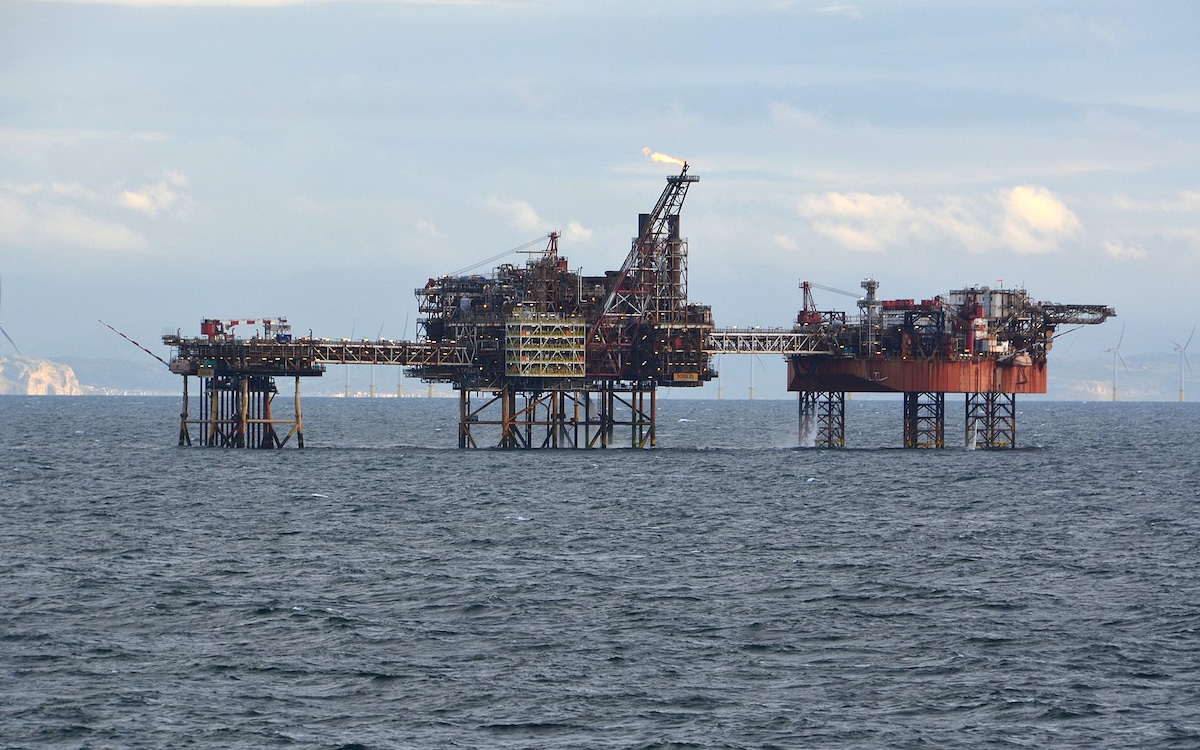
Pipeline Spills 500 Barrels of Oil Into Irish Sea on Anniversary of Environmental Disaster

A pipeline leak off the coast of Wales spilled around 500 barrels of oil into the Irish Sea on Monday on the anniversary of one of the worst ecological disasters in Welsh history.
The pipeline, which runs between oil installations at Conwy and Douglas, experienced a failure and has since been shut off, The Guardian reported. It is operated by a company called Eni UK.
“Eni UK Ltd can confirm that a release of hydrocarbons from its pipeline between the Conwy and Douglas installations, approximately 33km [approximately 20 miles] from the north Wales coast, was reported on Monday 14 February,” the company said in a statement.
The company said it had informed all relevant authorities and that the leak did not impact any workers or installations.
Government authorities including the Maritime and Coastguard Agency; the Department for Business, Energy and Industrial Strategy; and Natural England all said they were monitoring the situation and the company’s response, BBC News reported. The Maritime and Coastguard Agency also said it was “assisting partner local authorities in an ongoing response.”
Natural England also said it was prepared to send in assistance if any oil washed up on the beaches of either Wales or Lancashire, according to ITV.
Welsh Secretary Simon Hart told BBC News that Wales would likely remain unaffected.
“Any residual oil is not expected to beach on the north Wales coastline and teams are in place on the Lancashire coast ready to respond if any oil beaches there,” Hart said.
Sefton Council in Lancashire, on the other hand, warned that tar balls could wash up along its shoreline.
“Owing to currents and weather forecasts in the next 24 hours, we may see deposits, in the form of ‘tar balls’ washing up on our coastline as a result of this incident,” the council said, as ITV reported. “We would also stress that removal of this waste should only be carried out by professionals, and we ask that members of the public do not attempt to remove any ‘tar ball’ deposits.”
The incident comes as a reminder of the dangers of fossil fuel use. It occured on the 26th anniversary of Wales’ worst environmental disaster, when the Sea Empress oil tanker spilled 72,000 tonnes of crude off the Pembrokeshire coast, The Guardian reported. The incident, which occured on February 15, 1996, took more than a year to clean and claimed the lives of birds and invertebrates.
“It’s 26 years to the day since the Sea Empress disaster wrought ecological havoc on the Welsh coast… ” CEO of Wildlife and Countryside Link Dr. Richard Benwell told The Guardian. “Fossil fuel spills are again threatening the wildlife in our waters, which are already in a precarious state. The sooner we break our dependence on these dirty fuels the better.”
Eni UK is involved with exploring for and producing oil and gas, as well as transporting, trading and supplying natural gas, BBC News explained. It also processes oil for fuels and other products at chemical plants and refineries.
Greenpeace UK chief scientist Doug Parr told The Guardian that the incident and its timing was another example of why fossil fuels have to go.
“A quarter of a century on, we still find that oil is a dirty business at every stage, whether that’s through planet-warming emissions or leakages like this that harm marine life,” Parr said. “The ongoing environmental damage oil causes should be a major incentive to drive forward the cleaner, cheaper energy technologies that now exist.”

 233k
233k  41k
41k  Subscribe
Subscribe 